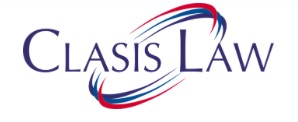29 June, 2019
With a view to stay abreast with technological advancement in this digital age and to harmonize the Copyright Act and Rules with similar legislations, the Department for Promotion of Industry and Internal Trade, Ministry of Commerce and Industry has issued a notification dated May 30, 2019, containing draft amendments to the Copyright Rules, 2013 (“Draft Amendments”). In terms of the said notification all interested stakeholders are invited to give their comments and feedback with respect to the Draft Amendments till June 29, 2019. The Copyright Amendment Rules, 2019 propose significant changes to the prevailing Copyright regime and the most prominent changes are discussed herein below under relevant headings:
Copyright Board
The Draft Amendment proposes to rename 'the Copyright Board' to 'the Appellate Board' and further proposes to merge the Copyright Board with the appellate board constituted under Trade Marks Act, 1999. Accordingly, the chairman and members of the board shall be appointed as per the provisions of the Trade Marks Act, 1999. However, the Draft establishes different qualification criterion that are to be considered whilst appointing technical members, for the purposes of the Copyright Act.
Statutory license for broadcasting of literary and musical works
One of the most significant amendment proposed by the Draft pertains to the rules for statutory licenses under Rule 29, 30 and 31 of the Copyright Rules, viz-a-viz broadcasting of literary works, musical works and sound recordings. The Draft Amendments seek to replace the words "by way of radio broadcast or television broadcast" with the words "for each mode of broadcast" in Rule 29 (Chapter VIII), which deals with the grant of statutory licenses to radio and television broadcasters of literary and musical works. It is quite likely that the aforesaid amendment may have been introduced in light of a recent judgment of the Hon'ble Bombay High Court in, Tips Industries Ltd. v. Wynk Music Ltd. & Anr., which was discussed in detail in the previous edition of our Newsletter.
The Court vide its order dated April 23, 2019, held that Section 31-D of the Copyright Act, 1957 covers only radio and television broadcasting under its ambit and as such, internet broadcasting service providers would not be eligible for statutory licenses as envisaged under the said section. nterestingly, the present Amendment seeks to clarify the legislative position on the subject and proposes to enlarge the scope and ambit of Section 31-D by including broadcast service providers through different media and thereby not restricting the same to just radio and television broadcasting. A practical implication of the above would be that it would be become easier and more commercially viable for media streaming/ broadcasting entities to disseminate and publish their content (songs and videos) to the public at large. However, how this would affect the commercial interest and distribution rights of copyright holders is yet to be seen.
Copyright societies
Another crucial amendment pertains to the operations and functioning of copyright societies. A copyright society is a legal body which protects and safeguards the interest of owners of work(s) by giving assurances of commercial management of the work(s) of creative authors and owners. These societies issue licenses and collect royalties in accordance with a tariff scheme. The Draft Amendment proposes to make it mandatory for copyright societies to publish annual transparency report besides revamping norms for tariff fixation by such societies1. Further, it also proposes to amend the manner in which copyright societies fix their tariff schemes. While copyright societies {in accordance with Rule 56 (4)} are presently obliged to determine tariff schemes by following the guidelines issued by a competent court, the copyright board and the user groups, whose work(s) are administered by it. The Draft Amendment proposes that, copyright society should also consider the following aspect whilst determining tariff schemes i.e.; cross-sectional tariff comparisons, economic research, nature and scope of the use of the work, the commercial value of the rights in use and the benefits to licensees2. Further, it proposes to introduce rules whereby, the copyright societies will be required to keep separate accounts of royalties received by it pertaining to cases where the said societies are unable to identify owners of work(s) and are accordingly unable to distribute the copyright holder's accrued royalties2. Furthermore, the copyright societies will also be obligated to refund such undistributed royalties to the relevant licensees where the royalties due to the author/ owners of the work remains undistributed for a period of three years from the end of the financial year in which the collection of royalty occurred.
A holistic review of the Draft Amendment suggests that the Government has proposed these changes to usher in an era of accountability and transparency, whilst updating the present procedures followed by the copyright offices to accommodate electronic means of communication, which is definitely the need of the hour.
For further information, please contact:
Vineet Aneja, Partner, Clasis Law
vineet.aneja@clasislaw.com
-
Amended Rule 65A, 66 of Copyright Act, 1957
-
Amended Rule 58 of Copyright Act, 1957





